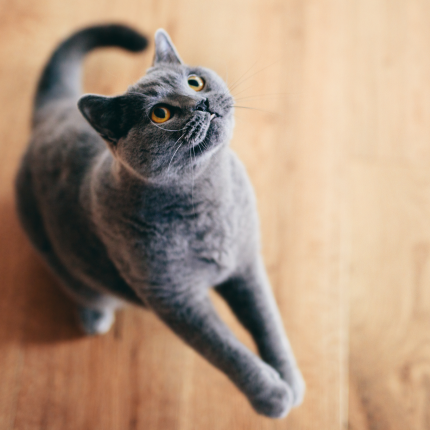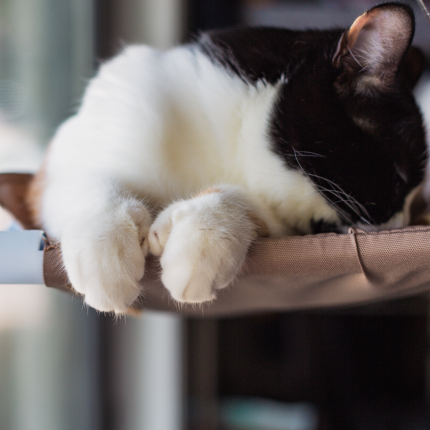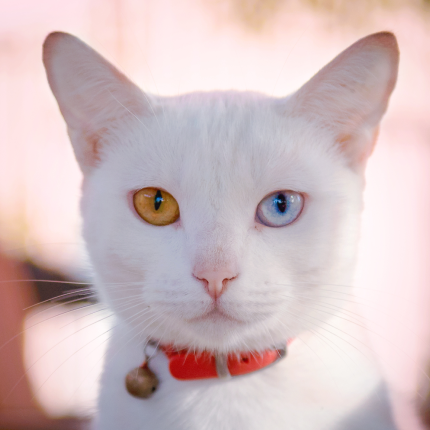Can Adopting a Cat Reduce Your Risk of Heart Disease?

Cats are more than just adorable companions—they could also reduce your risk of heart disease. A recent study published in the Second National Health and Nutrition Examination Study Mortality Follow-up Study suggests that adopting a cat may help lower the risk of fatal cardiovascular diseases, including heart attacks and strokes.
advertisement
The Surprising Link Between Cats and Heart Health
We’ve long known that pets, in general, can reduce stress and provide emotional support. However, this new study digs deeper into the potential health benefits of having a cat. Researchers set out to determine if there was a relationship between cat ownership and the risk of fatal cardiovascular diseases. The study examined over 4,400 people over 20 years, including their history of cat ownership, and found some compelling results.
According to the study, those who had previously owned cats showed a significantly lower risk of dying from a myocardial infarction (MI), also known as a heart attack. Specifically, the relative risk (RR) of death due to MI was 0.63 in participants who had previously owned a cat, meaning they were 37% less likely to die from a heart attack than those without cats in their lives.
Cats: The Natural Stress Reliever
So, what could be behind these surprising findings? Cats are certainly capable of being a calming presence, and interacting and petting them can lower blood pressure and reduce anxiety. These effects may be why cat ownership is linked to a lower risk of cardiovascular events.
The idea that pet owners, particularly cats, can lower stress isn’t new. Previous research has shown that pet ownership can lead to lower levels of cortisol, the hormone associated with stress, and higher levels of oxytocin, the bonding hormone. This hormonal balance could be the key element in managing the long-term effects of stress, which is a known contributor to heart disease.
Not Just Heart Attacks: Cats Could Help Prevent Strokes Too
The study also found a trend toward decreased risk of death due to cardiovascular diseases (CVD) in those who had owned cats. The relative risk for CVD-related death in those with a history of cat ownership was 0.74. While the results were not as strong for stroke-related deaths, the data still suggests that having a cat might contribute to overall heart health.
Could Cat Ownership Be a Heart Disease Prevention Strategy?
The implications of this study are significant. If owning a cat can lower the risk of heart attacks and strokes, it could offer an additional, simple strategy for reducing the risk of cardiovascular diseases—particularly in individuals who are already at higher risk due to factors like high blood pressure, high cholesterol, or diabetes. The best part? No special medications or interventions are required—simply welcome a feline companion into your home.
However, it’s important to note that while the study shows a link between cat ownership and lower cardiovascular risk, it doesn’t prove direct causation. More research is needed to understand the biological mechanisms behind these findings fully.
advertisement
Conclusion: Time to Adopt a Cat
With Kitten Season on its way, this may be your sign to go to your local animal shelter and adopt a cat or two! It’s a simple way to improve your overall health, and you would be doing a service to yourself and cats in need.

Featured Articles

Why Do Cats Roll Over Into Their Backs But Not Let You Touch Their Bellies?
It’s common knowledge dogs love to have their tummies rubbed when they freely lay down before you and roll onto their backs. But, if you’re also familiar with cats, you know that when they roll onto their backs with their bellies exposed, rubbing the belly will most likely result in…

Greebles and Cats: The Origin and the Meaning
You may have seen an internet sensation concerning cats labeled “greebles.” Feel out of the loop? We’re here to help you. In 2019, Reddit user /user/literallyatree commented on a Reddit post about a cat that looks like it’s trying to slap a ghost. This user commented: “My family calls things…

Polydactyl Cats: Just More Beans to Love
Polydactyl cats have become extremely popular in recent times. As a result, more and more people are interested in learning more about this six-toed cat and want to get one of their own. If you are a cat lover intrigued by polydactyl cats, you have come to the right place….
